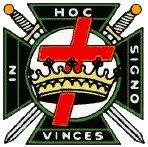
This article is dedicated to all the victims of communism worldwide.
For the major part of its history Spain has always been a land of Catholicism, it is the traditional land of the Reconquista, the Cid and the catholic kings (los Reyes catolicos). It is because of the Spanish empire that 500 million claim to be Catholics.
But this glorious Christian heritage and past is marked by a Dark period in which being Christian was a crime in the land that always was a fervent defender of Christianity… it is what is called the “Red terror”, another criminal record in the hall of fame of communism.
Between 1873 and 1931, Spain was having a political instability; the monarchy fell in 1873 leaving a place for the 1st Spanish republic and the 2nd in 1931. The political debate in the country was between defenders of the monarchy (conservatives) and communist all along with other left groups.
After the general election of 1936 tensions escalated between the two rivals and soon turned violent into clashes. Both parties fought each other in what was called later the Spanish civil war, but the atrocities committed by the communists (called Republicans in opposition to the right groups called nationalists) were by far barbaric and criminal.
The first year of the war witnessed the most terrible massacres: priests, nuns, clergy, monks, church attendants, bourgeoisies, politicians, industrialists …. Were slaughtered and murdered for the Christian faith. The catholic church of Spain lost 20 % of its clergy (6,832) in what was recognized to be the most severe persecution of Christians in the western world (de la Cueva 1998, p. 355)!!!
The death toll was not exactly known, it is estimated that between 38000 and 110000 were murdered by the communists (men of a Mancha). All this along with the destruction and burning of monasteries and churches all over the country.
Oct 28, 2007 the Vatican beatified 498 Spanish civil war victims. The pope paid tribute to the "martyrs" of the war, saying they "paid in blood for their faith in Christ and his Church" (ABC news).
Further details: Red Terror (Spain) on Wikipedia



